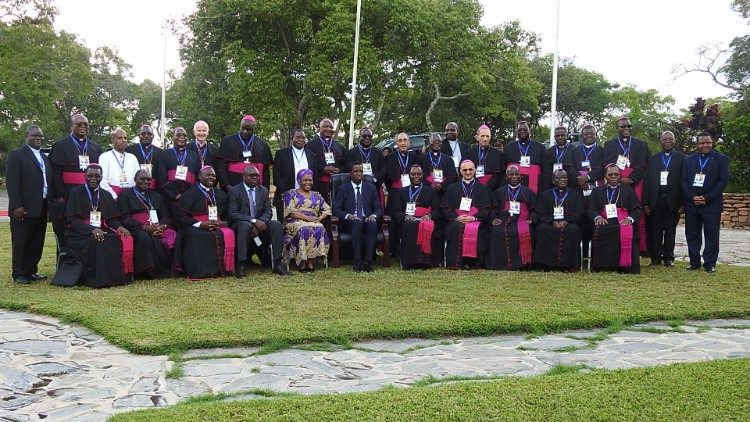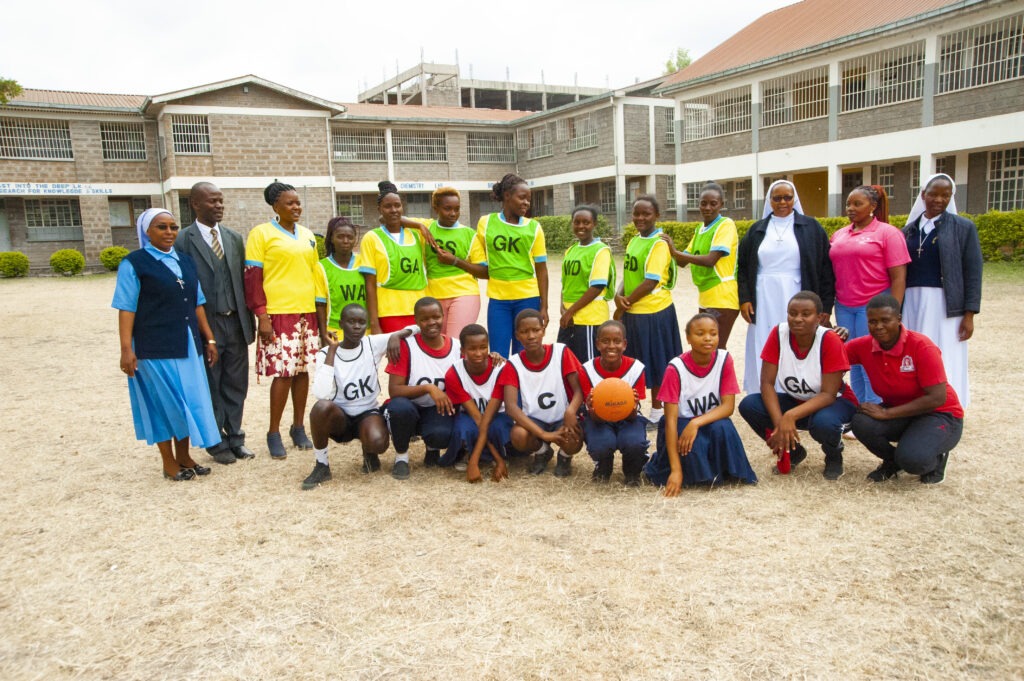In this article, Fr Kyara argues that basic science and not mere innovation is a crucial component for increased productivity and sustainable economic progress. He uses Kenya, perhaps one of the fastest-growing ICT markets in the world as an example. What he says about Kenya can be applied in the rest of Africa.
By Fr. Corbinian Kyara, SJ
The World Commission on Environment and Development describes sustainable development as a form of development that “meets the needs of the present without compromising the ability of future generations to meet their own needs”. Based on this view, the United Nations 2030 agenda for sustainable development underscores the importance of science in implementation and realization of sustainable development programs.
Considering the current wealth of information made possible through the advancement of science and technology, for me the apparent question is how science can live up to the United Nations’ expectation of having a transformative role in development. To beg the question: to what extent are our scientific researchers motivated to work on sustainability issues? The current reflection describes how through basic science, commonly referred to as fundamental or pure science, appropriate innovation might better deliver sustainable economic progress for the achievement of a country’s common good.
Scientific innovation for economic progress
Scientific innovation is generally accepted as an important driver for long-term productivity and a country’s economic progress. However, in the light of sustainable growth literature, there is an emerging realization that innovation is a necessary but not sufficient condition for long-term productivity and sustainable economic progress, but basic science. For significant and sustainable economic progress to take place, basic science must come in as a forerunner and a provider of an enduring foundation for innovation that leads to sustainable development.
Parallel to this view is the observation that unlike mere innovation, “basic scientific research affects more sectors, in more countries and for a longer time”. Taking the Kenyan economy as a case in point, we advance some arguments to show why basic science is an ultimate and non-interchangeable foundation for innovation and long-term economic progress, that can live up to the desired sustainable development.
Why basic science?
First, basic science is a necessary means for industrializing Kenyan industries, which are a path for increased productivity and long-term growth. Since developing countries, e.g., Kenya, are experiencing limited financial and human resources for Research and Development, knowledge transfer across countries remains an essential basis for innovation and increased productivity.
However, without basic science, the country will experience vertical transfer of technology as a basis for its innovation activities. Evidence has it that vertical transfer of technology for a country’s innovation is never sustainable. For instance, innovation may constitute how a Kenyan farmer can locally apply a Russian robotic machine in agriculture. So, the focus will be how to make the machine, as it is or with minor modifications, work in Kenyan conditions. The work of the resident (Kenyan) engineers in this case is to technically adapt the machine to the Kenyan setting.
Nevertheless, even if the machine works, the increased productivity will not be sustainable because the Kenyan farmers will essentially continue depending on Russian manufactures to produce the machine before it is modified to fit the Kenyan conditional needs. In the event the Russian engineers decide to face-out the production of this specific machine, the sustainability of farming in Kenya will be jeopardized.
On the contrary, if Kenyan engineers from the beginning decide not to merely import the manufactured machine to Kenya but carry out basic scientific research to acquire knowledge on how the machine is made, in the event Russia stops producing the machine, Kenyan engineers can as well arrange to produce the machine locally and ensure the continued productivity. In this case, for a sustainable future, developing economies should focus on horizontal transfer of technology which emphasizes knowledge transfer rather than applied innovative skills alone.
Second, knowledge spillover is beneficial to economies with a sizable level of basic science. Natural science literature shows that for various reasons, the bulk of scientific research is taking place in advanced economies and the outcomes spill over across the world. Yet, when it comes to making use of such spillover of knowledge to address local economic problems, basic research in the host country is of prime importance to drive innovation.
Therefore, for Kenya to benefit from scientific advances made possible somewhere else to grow its economy, basic science is inevitable. This means that Kenya will gain more by strengthening her efforts to invest in basic science as a basis for ensuring and making policies to adopt foreign knowledge to local conditions a reality. That is, coupled with appropriate policy, basic science leading to domestic research will ensure a horizontal transfer of foreign technology as a viable venue for sustainable development. For instance, to make the effects of foreign technology deeper in Kenya, the country must build stronger education and financial market systems because such systems make streams of foreign knowledge adoption possible. The modern streams of foreign knowledge include international trade, foreign direct investment, and on-the-job training.
Third, basic science provides essential means to meet our basic human needs: food, shelter, and clothing. In the words of the former president, Uhuru Kenyatta, science is among the major means to enable Kenya to resolve socioeconomic challenges facing the country. For instance, science provides us with a better means of addressing the problems associated with climate change more sustainably because it helps us understand our environment and the impact of our actions as individuals and society on it. So, basic science generates the knowledge we need for realization of sustainable economic development.
Fourth, basic science engenders internalization of the growing importance of information and communication technology (ICT), as a tool for overcoming economic marginalization. Kenya is a significant and perhaps among the fastest-growing ICT markets. The country is taking the world by surprise by leapfrogging past fixed analogue telephones into digital mobile communication and augmented Internet access. ICT is changing the face of the country in the way we work and communicate.
Kenya, a shining example
Basic science, therefore, will help in making better use of ICT and bring home its further potential for economic transformation in the country. For instance, basic science in Kenya gave rise to the establishment of M-Pesa, a uniquely Kenyan mobile money technological revolution, which in turn has added significant value on the way farmers, manufacturers, businesses, banks, medics, government, etc., conduct operations daily. Promoting appropriate basic research will enable Kenya to experience more of such innovations, and in turn achieve a sustainable future.
This reflection has endeavored to show that basic science is a crucial component for increased productivity and sustainable economic progress. Notwithstanding the much literature which fronts mere innovation as a basis for sustainable growth, innovation cannot be sustainable unless founded in basic science. Two policy implications from this reflection are in order. First, as Kenyans, we need to develop policies which motivate our basic science researchers to research on sustainability issues. For instance, interdisciplinary research, which has been a trend today in academia, may not succeed in delivering sustainable development solutions if the concerns that motivates researchers to start working on sustainability issues in the first place are not addressed. Country policies need to promote basic science for sustainability. However, after 60 years of independence, the signs we read from the literature show that this change – science for sustainability – has not taken root sufficiently.
Second, due to unequal political and economic power in the global economy, developing economies cannot significantly influence the global sustainability agenda. Thus, for a sustainable future, Kenya needs to refocus attention on scientific domestic solutions to domestic problems. Again, such reorientation calls for a reorientation of basic science research. E.g., domestic scientific research will generate insights for a successful domestic industrial policy aiming at domestic exploitation of local resources as a basis for individual and national economic transformation. While the art of doing basic science in Kenya needs to be transformed for it to deliver the desired sustainable development, for the sustainable future we want, today’s socioeconomic innovations must be founded in scientific research findings.












